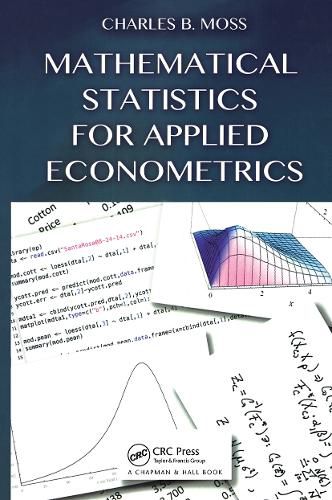Readings Newsletter
Become a Readings Member to make your shopping experience even easier.
Sign in or sign up for free!
You’re not far away from qualifying for FREE standard shipping within Australia
You’ve qualified for FREE standard shipping within Australia
The cart is loading…






An Introductory Econometrics Text
Mathematical Statistics for Applied Econometrics covers the basics of statistical inference in support of a subsequent course on classical econometrics. The book shows students how mathematical statistics concepts form the basis of econometric formulations. It also helps them think about statistics as more than a toolbox of techniques.
Uses Computer Systems to Simplify Computation
The text explores the unifying themes involved in quantifying sample information to make inferences. After developing the necessary probability theory, it presents the concepts of estimation, such as convergence, point estimators, confidence intervals, and hypothesis tests. The text then shifts from a general development of mathematical statistics to focus on applications particularly popular in economics. It delves into matrix analysis, linear models, and nonlinear econometric techniques.
Students Understand the Reasons for the Results
Avoiding a cookbook approach to econometrics, this textbook develops students' theoretical understanding of statistical tools and econometric applications. It provides them with the foundation for further econometric studies.
$9.00 standard shipping within Australia
FREE standard shipping within Australia for orders over $100.00
Express & International shipping calculated at checkout
An Introductory Econometrics Text
Mathematical Statistics for Applied Econometrics covers the basics of statistical inference in support of a subsequent course on classical econometrics. The book shows students how mathematical statistics concepts form the basis of econometric formulations. It also helps them think about statistics as more than a toolbox of techniques.
Uses Computer Systems to Simplify Computation
The text explores the unifying themes involved in quantifying sample information to make inferences. After developing the necessary probability theory, it presents the concepts of estimation, such as convergence, point estimators, confidence intervals, and hypothesis tests. The text then shifts from a general development of mathematical statistics to focus on applications particularly popular in economics. It delves into matrix analysis, linear models, and nonlinear econometric techniques.
Students Understand the Reasons for the Results
Avoiding a cookbook approach to econometrics, this textbook develops students' theoretical understanding of statistical tools and econometric applications. It provides them with the foundation for further econometric studies.